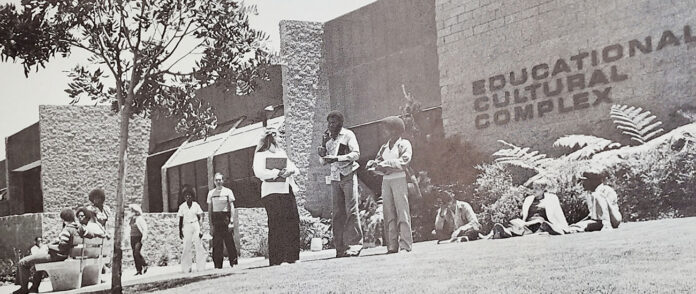
By Dr. Tina M. King and Kim Desmond
Working with the community in affecting change. That’s what the San Diego College of Continuing Education (SDCCE) has been engaged in since its founding more than a century ago. Today, SDCCE is working hand in hand with community partners that include the Jackie Robinson YMCA, Project New Village, General Dynamics NASSCO, the San Diego Housing Commission, the Jacobs Center for Neighborhood Innovation, and more in striving to realize our shared vision of providing everyone with equitable access to opportunity and the resources to thrive, no matter where they live or who they are.
A model of collaboration involves SDCCE’s partnership with the City of San Diego, who are working together on an effort to have the college’s Educational Cultural Complex (ECC) in Southeast San Diego designated as a Civil Rights Landmark and whose Department of Race and Equity recently led professional development trainings with college faculty, administration, and classified professionals.
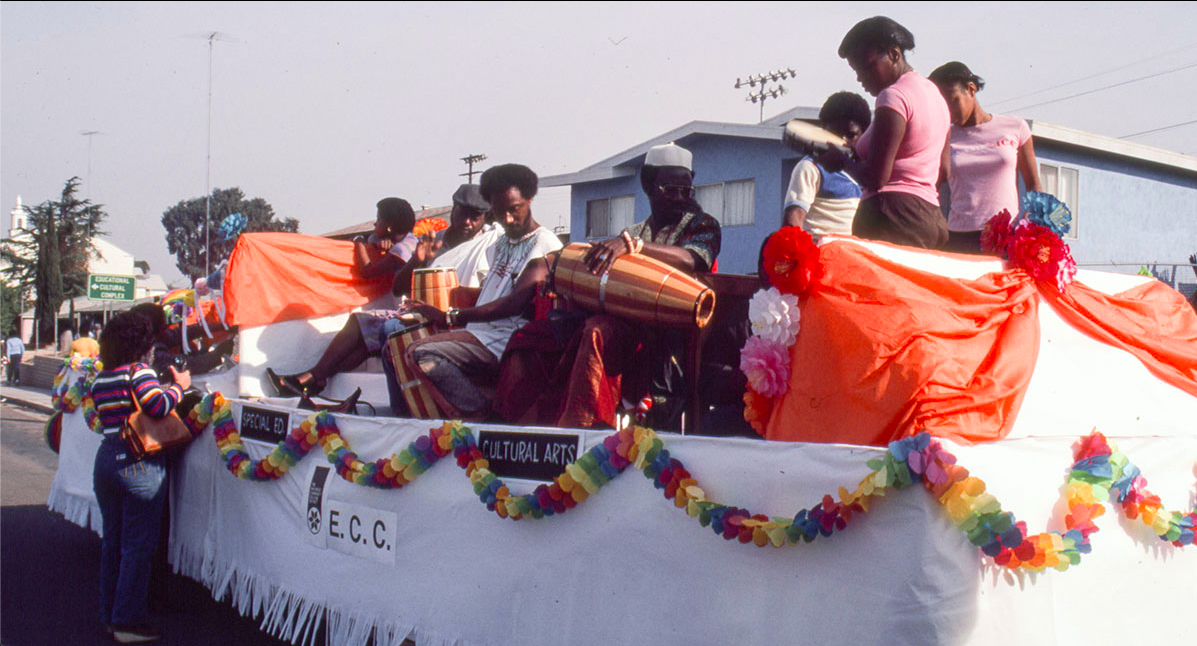
The partnership has been critical.
Historically, education systems and local government structures were the catalysts for policies that compounded racial inequity. On the city government side, redlining, gerrymandering, and directing populations of color to a limited number of professions produced the current state of inequitable outcomes in housing and education, not to mention the environmental injustice in our neighborhoods. In the education system, schools remained segregated long after the U.S. Supreme Court’s landmark Brown vs. Board of Education decision in 1954. Through the 1960s, the Federal Bureau of Indian Affairs used oppressive practices to force American Indian or Indigenous American students into English-only government boarding schools.
As we look back at history, we must learn from mistakes, repair past harm, and address the collateral consequence connected to the derivatives from institutional racism.
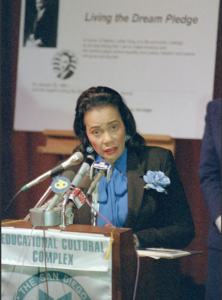
SDCCE has always been ahead of the curve. Founded in 1914 on the principles of inclusion and social justice, the college offers free classes for English Language Learners and free citizenship preparation courses for any immigrant and refugee yearning to reach their career and educational goals.
Through its noncredit, tuition-free offerings, SDCCE has been working with the city in tackling the homeless crisis and feeding students who are going hungry so they can succeed in furthering their education. Students, for example, can access SDCCE CARES (Commitment to Accessible Resources for Educational Support), a comprehensive basic needs program designed to help the hungry get fed and the homeless find shelter, not to mention transit vouchers, childcare, and mental wellness services.
By working to transform lives and support those who in the past had not received the support they needed, SDCCE’s career education programs in the 2019-20 fiscal year added $245 million in income to the San Diego County economy, enough to support 2,956 jobs, according to an EMSI Burning Glass study.
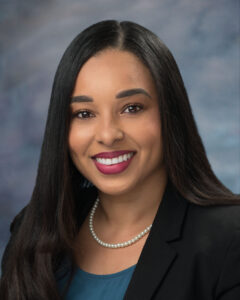
It’s not hard to understand why. In 1990, the college launched a Working Women in the Trades program to help women in skilled trades overcome challenges they faced when breaking into careers and jobs traditionally held by men. To combat healthcare disparities among minority populations being served by and working as medical professionals, SDCCE’s free Certified Nursing Assistant (CNA) program operated throughout the COVID-19 pandemic, with CNA graduates filling a critical shortage in the field.
When the college’s landmark Educational Cultural Complex opened in Southeastern San Diego in 1976, complete with a 300-seat theatre and skills-building programs ranging from auto mechanics to welding, it brought change to an economically disadvantaged neighborhood bereft of higher education options and theaters showcasing the area’s culture.
Over the years, the ECC, as it is affectionately known in the community, was woven into the fabric of the Civil Rights Movement. Most major city events associated with the Dr. Martin Luther King Jr. Day weekend were founded and organized at the ECC, including the annual Martin Luther King Jr. Parade, the King and Queen Pageant, the Annual Educators Breakfast, and the multicultural community festival. Shortly after Martin
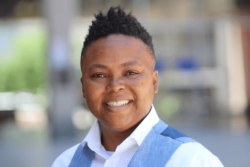
Luther King Jr. Day was established as a federal holiday, the late-Coretta Scott King came to the ECC to host a three-day symposium thanking SDCCE for leading the national campaign to celebrate her husband’s legacy.
Thanks to the generosity of a $35 million state renovation grant from President pro Tempore of the California State Senate Toni G. Atkins, major renovations at the ECC theatre will soon get underway, transforming the facility into a Southeast San Diego version of the La Jolla Playhouse.
Building community and empowering those who have been left behind is what SDCCE has been striving for since its founding. It has succeeded because of its collaborative approach.
Tina M. King, Ed.D., is President of the San Diego College of Continuing Education


